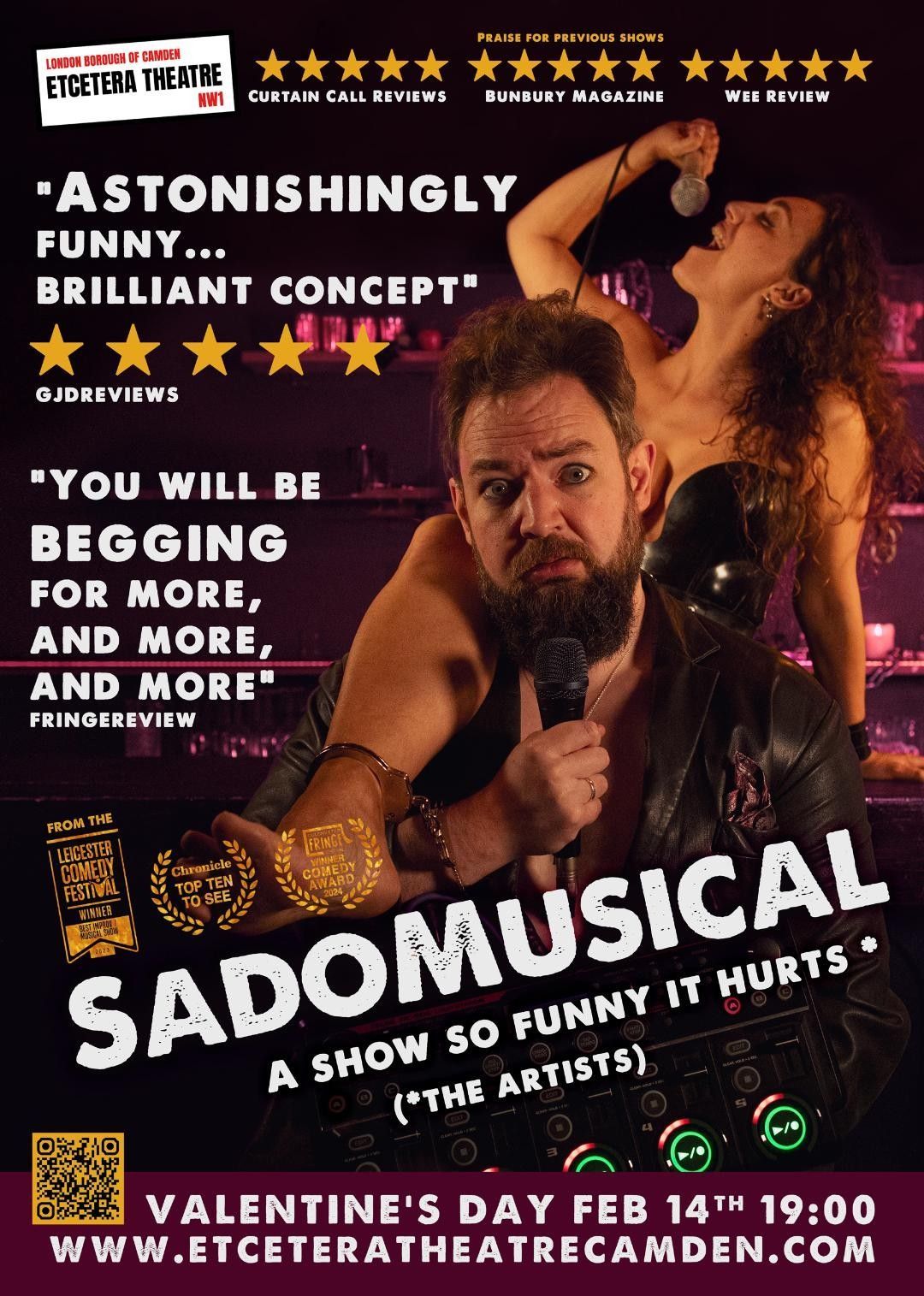Russell Lucas modestly talks about his ‘bric-a-brac’ entry into theatre, which has resulted in a successful and prolific career as a theatre maker and lecturer. In his newly published book, 300 Thoughts for Theatremakers, he is widening the conversation about who works in the industry and readdressing the way we make theatre, especially for those using a non-funded model.
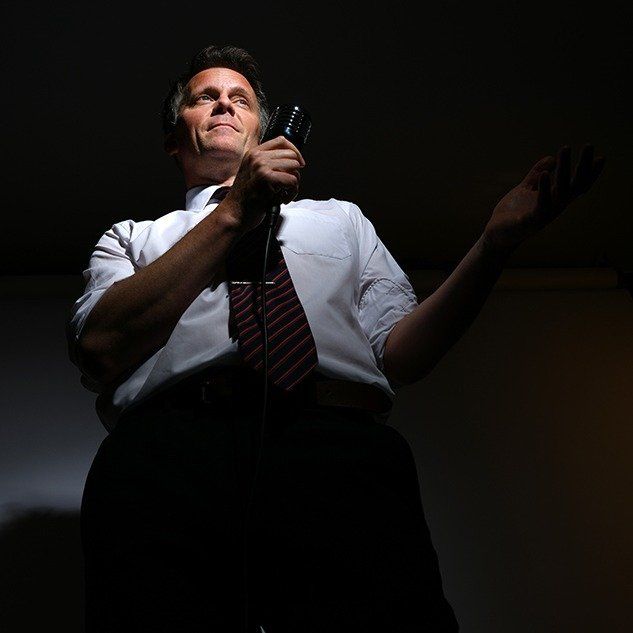
Russell Lucas in The Bobby Kennedy Experience, also written by Lucas (Town and Gown Pub & Theatre, Cambridge)
Below: Director Russell Lucas with actor Harvey Bassett in rehearsals for Psychopomp by Roger Benington (Canal Café Theatre, 2017)
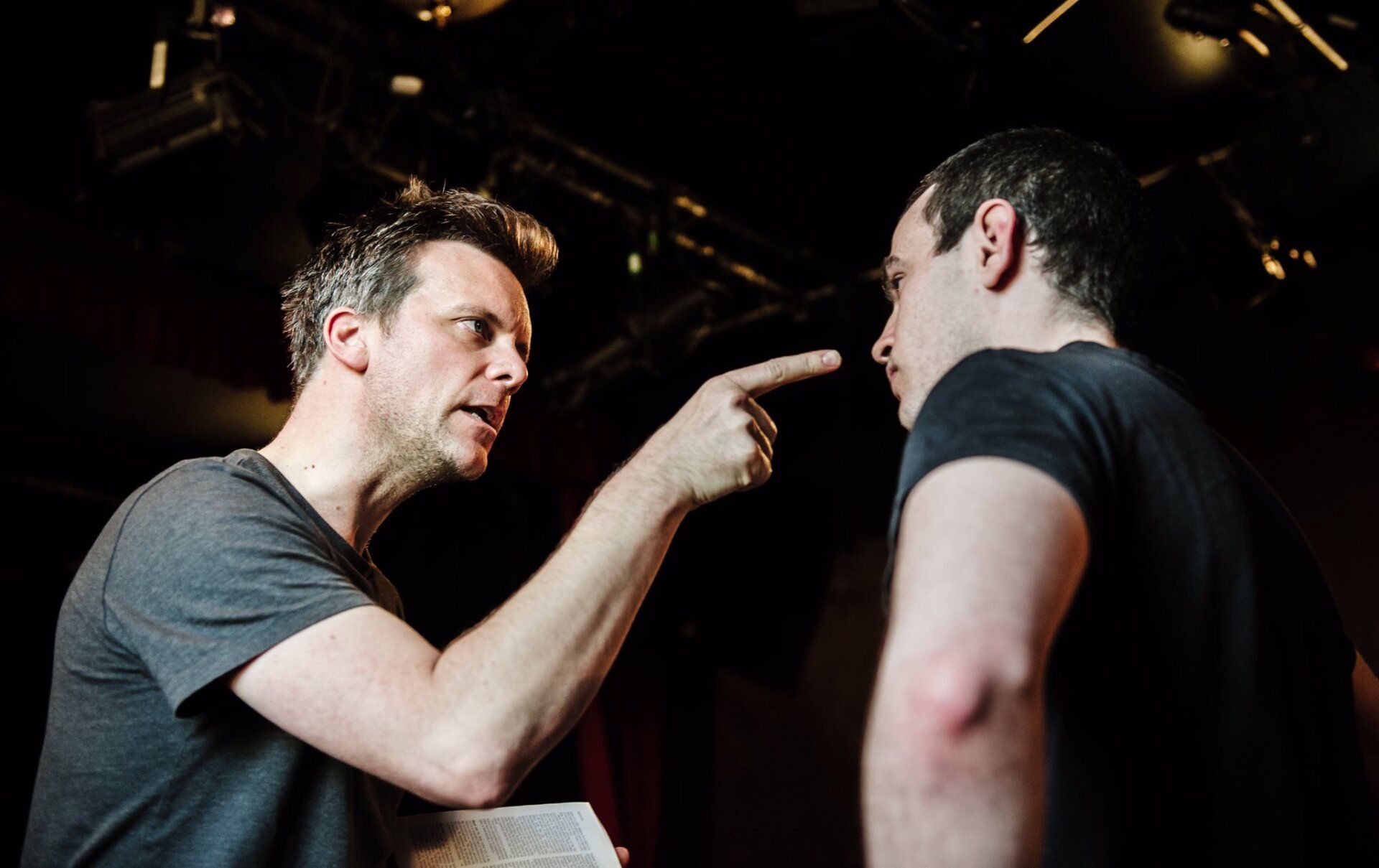
Lucas is a testament to the eclectic opportunities that the independent UK theatre scene offers to self-supported artists, and his book explores these quieter, but equally valid careers. he has worked extensively in pub theatres as well as many other venues. He has often collaborated with the Canal Café Theatre (Little Venice) including presenting a whole season of work in which he directed two UK premieres (The forgotten Tennessee Williams play The Fat Man’s Wife, and Theresa Rebeck’s The Understudy). He has also presented new work at the Rosemary Branch Theatre (Islington) and outside London at The Old Joint Stock Pub (Birmingham) and the Town and Gown Pub Theatre (Cambridge).
The book began its life during lockdown in 2020 when Lucas started to record voice-notes of his thoughts about making theatre. “I’m over 50 years old, and I’ve done quite well without any funding or private money, so I wanted to study how I did that”. He started to transcribe these thoughts and framed them as a book. That process began to reveal a sort of ‘anti-system’. Lucas suggests that unless theatremakers are funded – whether through ACE, private or commercial – they really do struggle to find a platform for their work. "But" says Lucas, “we exist and it’s time to claim back some land, and here’s how I think we can do it". He also suggests that there is this perception that people working in small theatre spaces can’t make any money. “But that’s so wrong as there are hundreds of people travelling the country with a show in a suitcase, and they make a living out of it,”’says Lucas. “Yes, you may need to think differently, but that’s what this book is about. Everything’s possible and everyone is allowed.” He adds that framing these people as ‘fringe', is old-fashioned and no longer represents the artist who works in this space. “We’re not fringe, we’re independent theatre makers.” 300 Thoughts for Theatremakers is an “interrogation of this cultural shift” says Lucas.
Publisher Nick Hern Books was very keen to take the book on, as they also think it’s super-important, and it appears they were right as theatre practitioners are welcoming this new conversation. “I’ve had a great response” says Lucas, “a lot of people say they have felt seen, and that it’s validated what they’ve felt for a long time”. The book is now available on the shelves at the Royal Court and The National “which is brilliant news” says Lucas “as it really needs to get into the blood stream”.
In the book, some of his thoughts turn to drama schools and universities that traditionally focus on specific disciplines – but, in Lucas’ opinion 21st century theatre-makers now need a broader spectrum of skills. “We need all-encompassing theatre courses that include the making and then the producing of work.” Some institutions are responding, but it’s not enough. “If we don’t undo and then rewire some of our previous thinking” says Lucas, “we’ll lose future artists and the spaces that they might have filled.” Lucas explains that he has spoken with a few recent graduates about this and found that a lot of students only got a few days tutoring on how to produce their own work. “Most graduates will automatically become independents in smaller infrastructures, and they need to be taught how to manage this—and that can’t be achieved in one day, it has to be embedded in the curriculum” says Lucas. "In fact, entrepreneurship and autonomy must now be at the core of any modern theatre curriculum.”
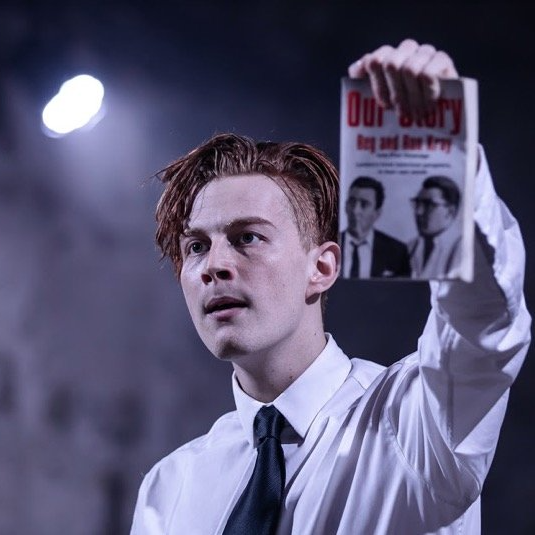
Alex Boxall in Warped by Martin Malcolm, directed by Russell Lucas (VAULT Festival, 2019)
Below: Sarah-Louise Young in An Evening Without Kate Bush, co-created by Russell Lucas (seen in tour around the UK)
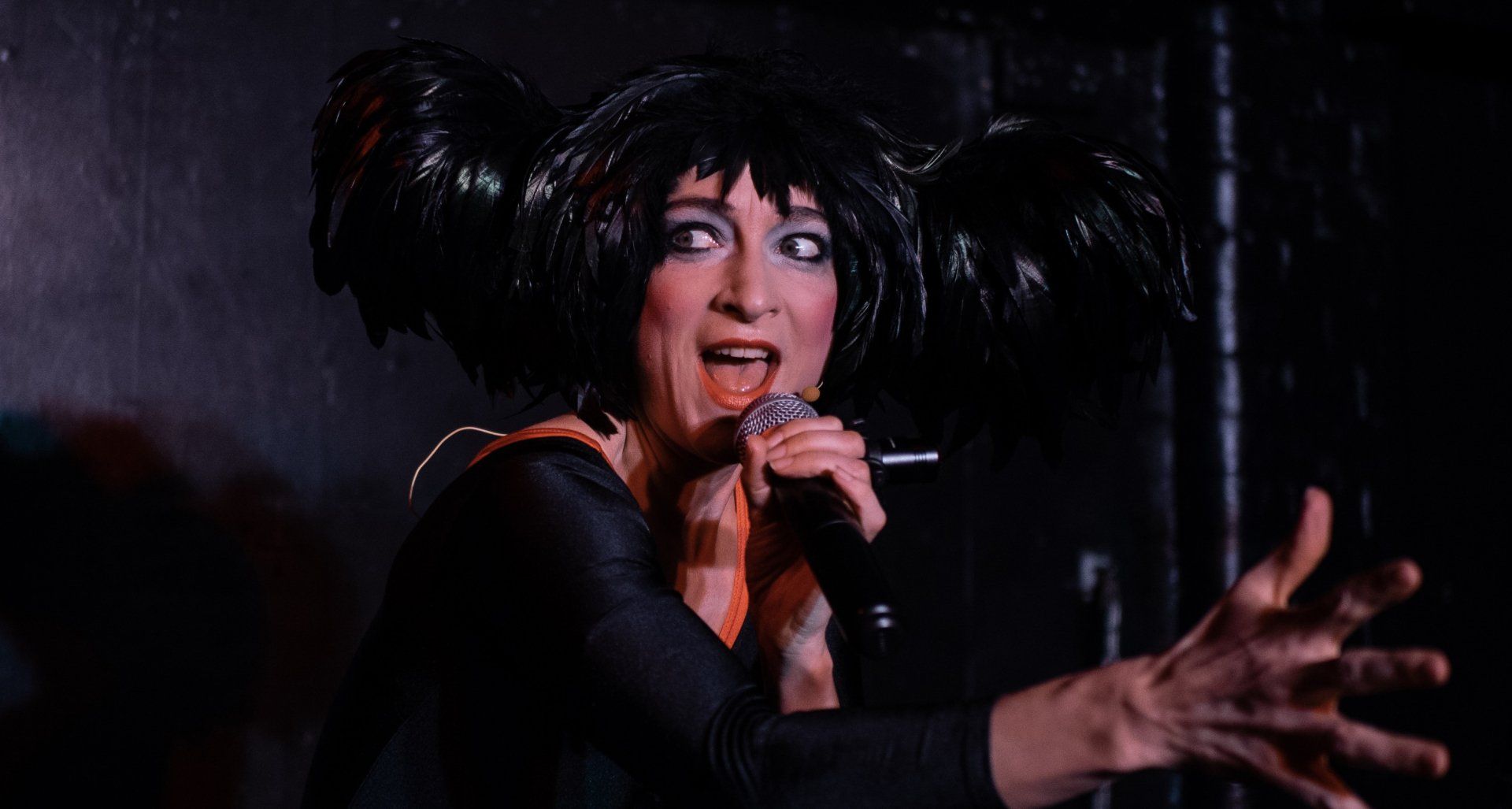
Lucas himself attended a drama course at Sandwell College. "It was a golden opportunity," he says, because at that time, college education was paid for by the local authorities, but he nearly didn’t make it. “At the induction, I was frozen by fear and anxiety,” he says, 'I went to leave during the lunch break, but as I was walking across the field, I thought, 'What if I stayed?' He turned around and went back. He then discovered that he had enormous energy for creating new work. “The lecturers made us create original work all the time” says Lucas, “very rarely did we perform something pre-written.” He also found that he was good at directing and managing groups. The college insisted that he should embrace this and get a teaching qualification, which he did on day release.
Some of the things that Lucas wishes he had known when he started out were ‘basic ones’, such as making theatre relevant to now and protecting your show. “Don’t keep asking everyone for feedback but rather ask specific questions because you have to retain your artistic ownership” explains Lucas. He is also adamant that the “role between the actor and director must be collaborative, not hierarchical”. Lucas really wishes he had been told this when he was a young actor, to “stop playing the servant”.
In 300 Thoughts for Theatremakers, Lucas also gives practical advice which is sometimes inspirational and sometimes provocation. Some of the provocations make you think, and they need teasing-out, such as Lucas’ mention of 'culture wars.' As Lucas explains, if a theatre maker wants to create a political piece, “it’s very important 'to know the other side of the debate; otherwise, you’re just using theatre as a soap-box and you will end up reducing your audience”.
Thought number 27 offers inspiration. “Movement is the visual language of theatre... You can literally change the plot or the intention of a moment through movement”. In Lucas’ practical experience, he doesn’t “over direct or over choreograph” but rather allows it to develop organically. “Expressing the truth in the text with freedom of movement is key... movement is so powerful” says Lucas.
Number 269 offers practical advice with some rules for freelancers—sixteen must-do's, including: Always reply to every email; learn everyone’s job; keep a record of your work-relevant purchases; and communicate your expectations to yourself and to others. For Lucas, the most important thing on the list is to allow yourself some time off. “It’s liberating when you suddenly realise you can” he says.
Finally, Lucas shares one of the most important points in the book to urge everyone to help each other and to give back to the industry. He expands: “Support each other; go and see as much theatre as possible and remember you are the servant of the audience and it is your job to keep them entertained.”
"Russell is an auteur. It is always an honour to
work alongside him with his unique vision and voice and his inimitable style of collaboration. This is a very timely and necessary book and should be required reading by all drama school students and theatre practitioners."
Emma Taylor, Artistic Director of Canal Café Theatre
300 THOUGHTS FOR THEATREMAKERS is published by Nick Herne Books
